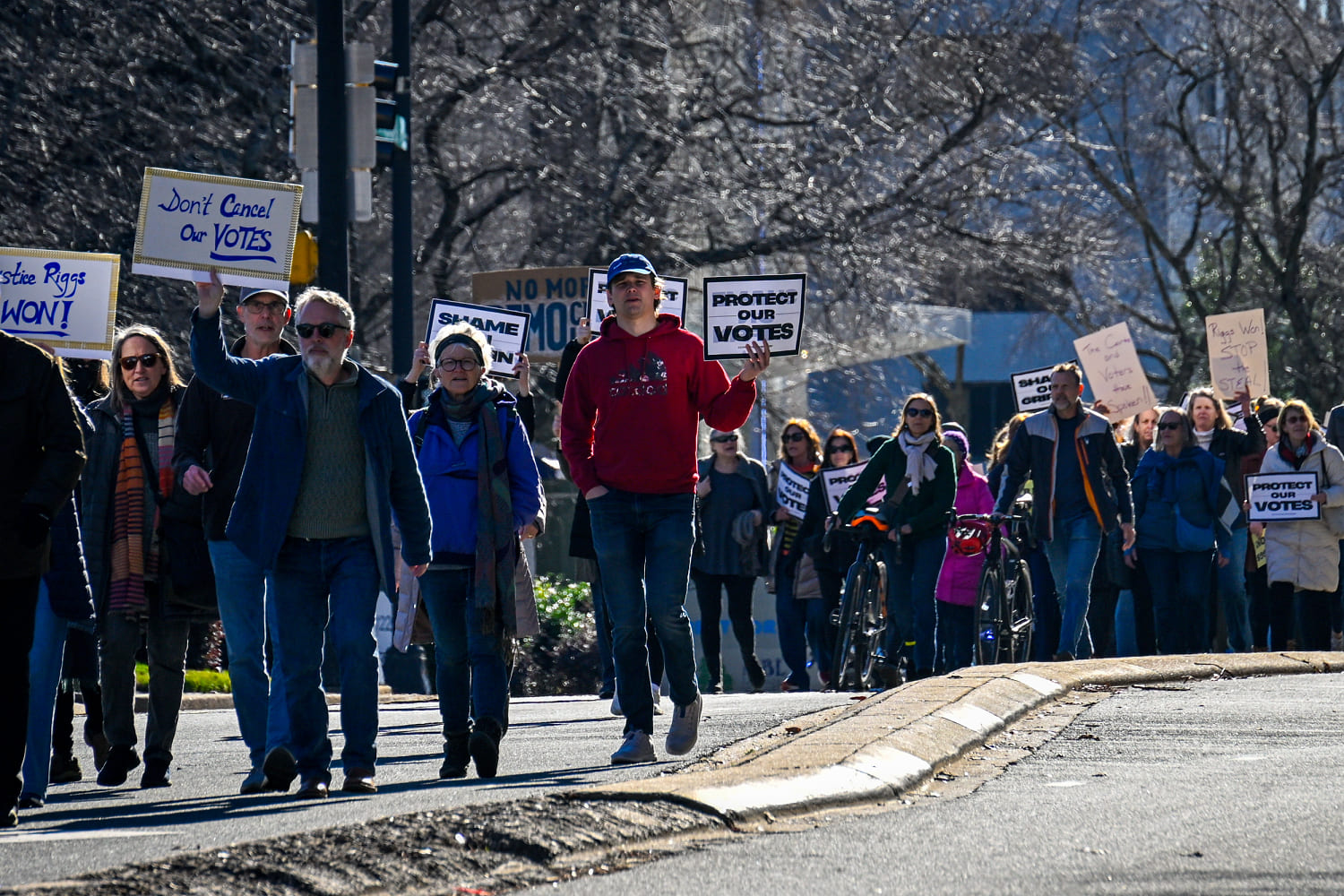
The North Carolina high court on Friday issued a ruling on the still-unresolved state Supreme Court election that could negate Democratic Justice Allison Riggs’ narrow win.
In a 4-2 decision, the court determined that more than 60,000 challenged ballots in the race must be counted, but allowed to stand a lower court’s decision to disqualify hundreds of contested ballots. The justices also ruled that about 5,000 military and overseas voters must prove their identity within 30 days or risk having their ballots invalidated.
The ruling calls into question enough votes to potentially undo Riggs’ November election win, in which her margin of victory was a mere 734 votes. After the election, her opponent, Republican appeals judge Jefferson Griffin, refused to concede and filed hundreds of legal challenges across the state, contesting tens of thousands of votes.
The race has been bogged down in the courts since. In January, the state Supreme Court blocked election officials from certifying the results.
The high court has a 5-2 GOP majority (Riggs has recused herself from this case). Democratic Justice Anita Earls and Republican Justice Richard Dietz concurred with the majority opinion on the question of the 60,000 ballots but separately issued scathing dissents against the rest of the decision.
“I expected that, when the time came, our state courts surely would embrace the universally accepted principle that courts cannot change election outcomes by retroactively rewriting the law. I was wrong,” Dietz wrote. “By every measure, this is the most impactful election-related court decision our state has seen in decades.”
Late on Friday, Riggs filed a motion asking a federal judge to block the state court’s ruling temporarily.
“I’m the proud daughter of a 30-year military veteran who was deployed overseas, and it is unacceptable that the Court is choosing to selectively disenfranchise North Carolinians serving our country, here and overseas,” Riggs said in a statement after the decision.
